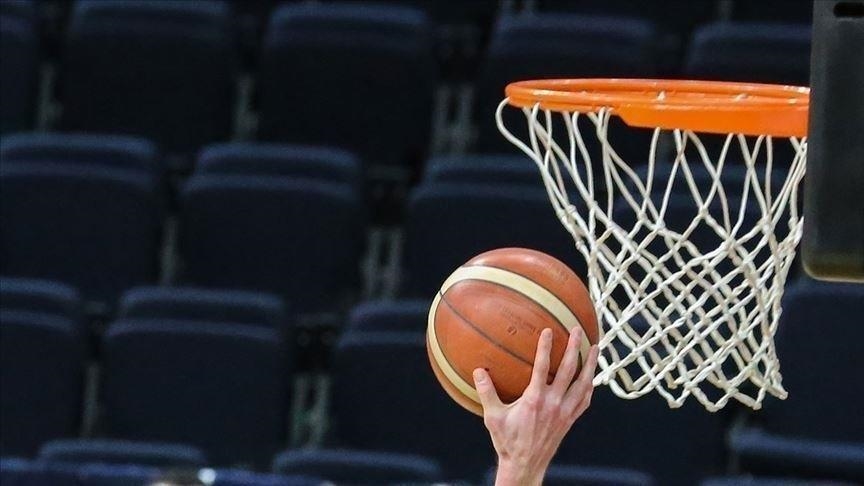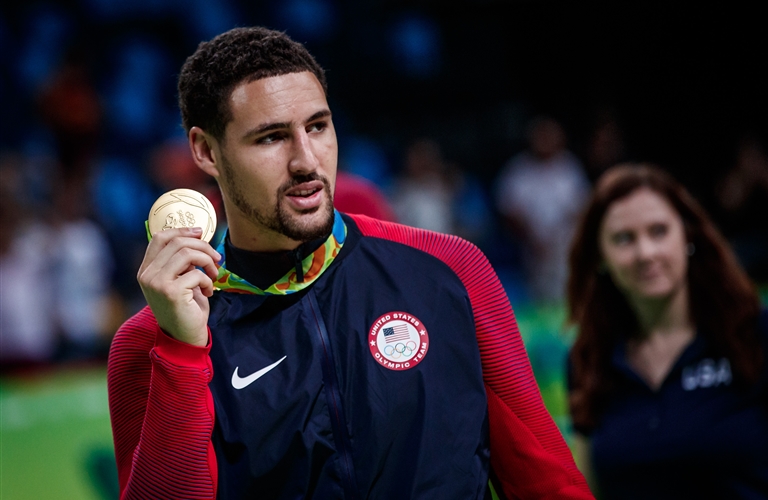Historical Overview: Olympic Basketball Final

The Olympic basketball finals have witnessed a captivating evolution, showcasing the game’s strategic complexities and the emergence of legendary players. From its humble beginnings to the modern era, the journey has been marked by remarkable moments and shifts in playing styles, leaving an indelible mark on the sport’s history.
Timeline of Olympic Basketball Finals
This section provides a chronological overview of significant moments and key players in Olympic basketball finals, highlighting the game’s growth and evolution.
- 1936 Berlin Olympics: The first official Olympic basketball tournament, featuring only men’s competition, saw the United States claim the gold medal. The game was still in its nascent stages, with a different set of rules and a less refined style of play.
- 1948 London Olympics: The United States once again dominated, showcasing their athleticism and superior skill. The game began to gain popularity, with more countries participating.
- 1956 Melbourne Olympics: The United States faced their first real challenge, with the Soviet Union putting up a strong fight. The game was becoming more physical and strategic, with teams employing more complex offensive and defensive schemes.
- 1972 Munich Olympics: The United States, favored to win, suffered a shocking defeat to the Soviet Union in a controversial game. The Soviets were known for their disciplined play and teamwork, while the Americans were criticized for their individualistic approach.
- 1984 Los Angeles Olympics: The United States regained their dominance, featuring a team of NBA stars, showcasing the game’s growing professionalism and the increasing influence of the NBA on international basketball.
- 1992 Barcelona Olympics: The introduction of professional players into the Olympic Games marked a turning point. The “Dream Team,” featuring iconic NBA players like Michael Jordan and Magic Johnson, dominated the competition, showcasing the game’s global appeal and the rise of American basketball on the world stage.
- 2008 Beijing Olympics: The United States faced a formidable challenge from Spain, showcasing the growing competitiveness of international basketball. The game’s intensity and skill level had reached new heights.
- 2012 London Olympics: The United States, featuring a talented team of NBA players, secured the gold medal, solidifying their dominance in the sport.
- 2016 Rio Olympics: The United States, despite facing stiff competition from teams like Spain and Serbia, successfully defended their title.
- 2020 Tokyo Olympics: The United States, led by a new generation of NBA stars, faced a more competitive field than ever before, ultimately securing the gold medal against France. The tournament highlighted the rising talent and strategic sophistication of international basketball.
Evolution of Rules and Strategies
This section explores the evolution of rules and strategies in Olympic basketball finals, demonstrating how the game has adapted and progressed over time.
- Early Years (1936-1950s): The game was characterized by simpler rules and a more rudimentary style of play. The emphasis was on individual skills and athleticism, with less emphasis on team play and strategy.
- The Rise of Team Play (1960s-1970s): Teams began to focus more on team play and strategic execution. The game became more complex, with the introduction of new offensive and defensive schemes. The importance of teamwork and player coordination became more pronounced.
- The Professionalization of the Game (1980s-present): The introduction of professional players into the Olympics, particularly from the NBA, brought a higher level of athleticism, skill, and strategic sophistication to the game. The game became faster and more physical, with a greater emphasis on three-point shooting and fast breaks.
- Global Influence (present): International basketball has continued to evolve, with teams from Europe, Asia, and South America challenging the dominance of the United States. The game has become more globalized, with players from different parts of the world contributing to the sport’s growth and evolution.
Playing Styles of Dominant Teams
This section analyzes the playing styles of dominant teams in different eras, showcasing the diverse approaches and strategies that have contributed to their success.
- United States (1936-1970s): The early American teams were known for their athleticism and individual brilliance. They relied on fast breaks, high-scoring offenses, and individual talent.
- Soviet Union (1970s-1990s): The Soviet Union teams were known for their disciplined play, teamwork, and strategic execution. They emphasized defense, ball movement, and a more methodical approach to offense.
- “Dream Team” (1992): The 1992 United States team, featuring NBA superstars, dominated the competition with their athleticism, skill, and offensive firepower. They redefined the game with their superior talent and innovative offensive strategies.
- Modern United States (2000s-present): The modern American teams have continued to dominate, relying on a combination of athleticism, skill, and a versatile offensive approach. They have incorporated elements of international basketball, such as three-point shooting and fast breaks, into their game.
Recent Olympic Basketball Finals

The recent Olympic basketball finals have showcased the pinnacle of international basketball competition, featuring the world’s best players and teams vying for the coveted gold medal. These games have been characterized by intense rivalries, thrilling moments, and strategic brilliance, leaving a lasting impact on the sport.
Analysis of the 2020 Tokyo Olympics Final
The 2020 Tokyo Olympics final was a captivating clash between the United States and France, with both teams displaying exceptional talent and determination. The game was a testament to the strategic adjustments and player performances that influenced the outcome.
The United States, led by Kevin Durant’s scoring prowess and Draymond Green’s defensive presence, dominated the early stages of the game. Their ability to move the ball effectively and create high-percentage scoring opportunities proved to be a significant advantage. However, France, spearheaded by the veteran leadership of Nicolas Batum and the scoring explosiveness of Rudy Gobert, fought back relentlessly. They employed a suffocating defense, forcing turnovers and disrupting the United States’ offensive rhythm.
A pivotal moment came in the third quarter when France managed to narrow the gap, taking advantage of the United States’ fatigue. The game went down to the wire, with both teams trading baskets in the final minutes. Ultimately, the United States’ experience and resilience prevailed, securing a hard-fought victory and their fourth consecutive Olympic gold medal.
Impact of International Competition on Basketball Talent
International competition has played a crucial role in the development of basketball talent worldwide. The exposure to different styles of play, coaching philosophies, and competitive environments has fostered a global exchange of ideas and techniques.
The Olympic Games, in particular, have provided a platform for players from diverse backgrounds to showcase their skills and compete against the best in the world. This has led to a rise in the level of play across all continents, with emerging basketball powers like Spain, Australia, and Argentina consistently challenging the traditional giants.
The international stage has also created opportunities for players to develop their versatility and adaptability. The diverse range of playing styles encountered in international tournaments has forced players to expand their skill sets, becoming more well-rounded and capable of thriving in various situations.
“The Olympics have been a catalyst for the globalization of basketball, fostering a culture of innovation and collaboration among players and coaches worldwide.” – A renowned basketball analyst
The impact of international competition on basketball talent is evident in the increasing number of players from outside the United States who are making significant contributions to the NBA. This global talent pool has enriched the league, adding diversity and a new dimension to the game.
Impact and Legacy

The Olympic basketball finals are more than just sporting events; they are cultural and societal touchstones that transcend national boundaries and unite people through the shared passion for the game. These games serve as a platform for global sportsmanship, fostering respect, understanding, and camaraderie among athletes and spectators alike.
Cultural and Societal Significance
The Olympic basketball finals have a profound impact on global culture and society. They ignite a collective spirit of unity and celebration, transcending language barriers and cultural differences. These games become moments of shared experience, fostering a sense of belonging and pride among fans worldwide. They also serve as a powerful platform for promoting cultural exchange, showcasing the diverse talents and traditions of participating nations.
Role in Promoting Global Sportsmanship and Cultural Exchange, Olympic basketball final
Olympic basketball finals embody the spirit of sportsmanship, highlighting the values of fair play, respect, and teamwork. Athletes from different backgrounds come together, competing fiercely but upholding the highest standards of ethical conduct. These games also promote cultural exchange, allowing athletes and spectators to learn about different cultures through the language of basketball.
Top 5 Most Memorable Olympic Basketball Finals
The Olympic basketball finals have witnessed numerous iconic moments and unforgettable performances. Here are five of the most memorable finals, each with its unique aspects and historical context:
| Year | Teams | Score | Unique Aspects | Historical Context |
|---|---|---|---|---|
| 1992 | USA (Dream Team) vs. Croatia | 117-85 | The debut of the legendary Dream Team, featuring NBA superstars like Michael Jordan, Magic Johnson, and Larry Bird. | The collapse of the Soviet Union and the rise of new basketball powers. |
| 2008 | USA vs. Spain | 118-107 | A thrilling matchup between the dominant US team and a formidable Spanish squad led by Pau Gasol. | The rise of Spain as a global basketball power. |
| 2012 | USA vs. Spain | 107-100 | Another intense battle between the US and Spain, with LeBron James leading the US to victory. | The continued dominance of the US team in international basketball. |
| 2016 | USA vs. Serbia | 96-66 | The US team, featuring Kevin Durant and Kyrie Irving, dominated Serbia to win their third consecutive Olympic gold medal. | The emergence of Serbia as a rising force in international basketball. |
| 2020 | USA vs. France | 87-82 | A close and exciting final, with the US team securing their fourth consecutive Olympic gold medal. | The continued global popularity of basketball and the rise of new basketball powers. |
The Olympic basketball final is a global spectacle, where the world’s best players battle for gold. The intensity of these matches is palpable, with every possession and shot carrying immense weight. If you’re interested in delving deeper into the history of this thrilling event, check out this article on the Olympic basketball final – it’s a fascinating look at the legacy and evolution of this iconic competition.
The Olympic basketball final is a nail-biting spectacle, with every shot and rebound echoing through the arena. After the final buzzer, though, you might want to unwind in the comfort of your own backyard with a refreshing drink. The Barcelona 6 piece padded chair patio set offers the perfect blend of style and comfort for those post-game celebrations, allowing you to relive the excitement of the final in a relaxed and inviting setting.
